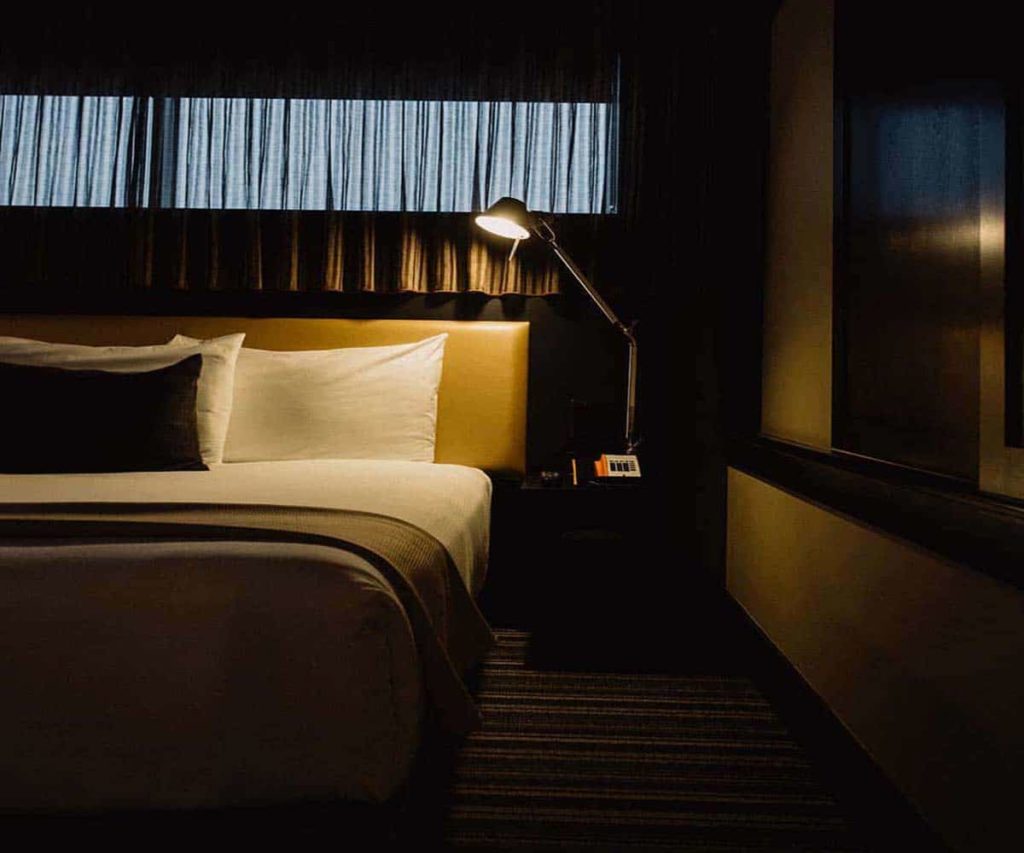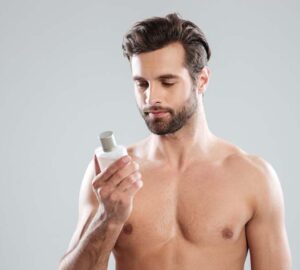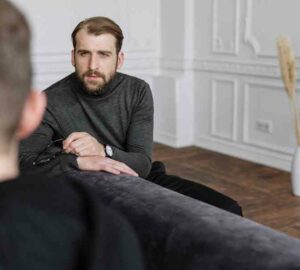Athletes need great amounts of water, protein, and sleep. They require much more than people who exercise less. When it comes to seep, however, it’s not just the amount of rest you get each night that matters to your body; it’s also the quality. To give your body the time it needs to recover, you need regular, extended, unbroken and comfortable sleep. If you’re leading an active lifestyle and struggling to sleep well, post-exercise insomnia could be the problem.
What Is Post-Exercise Insomnia?
Insomnia after intense exercise is common amongst gym and sports club attendees. When you exercise, your body undergoes certain processes that can make it hard to fall into a natural sleep.
- When you experience intense exercise, your body sweats and loses water. Failing to drink enough fluid during the day of your workout session shall cause dehydration. Dehydration prevents your body from regulating its core temperature, which causes restlessness when trying to sleep. Moreover, when your body’s fluid levels are low, your heart rate rises, which prevents your body from relaxing.
- The National Sleep Foundation article explains energy drinks (specifically their caffeine content) block sleep-inducing chemicals in your brain and increases the production of adrenaline. A surge in adrenaline can lead to post-exercise insomnia.
- The body perceives exercise as a stressor. In response, the body releases cortisol (the fight-flight hormone) and norepinephrine. Both are stress hormones that trigger your awakeness and raise your heart rate, further delaying the possibility of sleeping.
- According to a study from the US National Library of Medicine National Institutes of Health, exercise suppresses the production of melatonin. Melatonin is a hormone that is produced mostly at night time to enable the body to sleep.
- The endocrine and nervous systems are stimulated when you exercise. The endocrine system controls bodily functions that release various hormones. For example, when you work out, the thyroid gland discharges hormones that increase your focus and alertness during high-intensity exercise, which delays the possibility of you falling asleep.
- Abnormal lighting in the gym or at a leisure center, particularly at night, may delay your sleep by tampering with your circadian rhythm and decreasing the production of melatonin. Your circadian rhythm is your internal biological clock that controls your bodily processes over 24 hours, including when you sleep and wake. Thus exposure to artificial lights, mostly in the evening, is detrimental to your sleep health.
These are some of the factors that pose a threat to you gaining a good night’s sleep. Below, we offer better sleep tips to help those who lead an active lifestyle avoid post-exercise insomnia and get a good night’s rest.
How Athletes Can Stimulate A Deep Sleep
To orchestrate a great night’s sleep in a life full of exercise, you must put some time and effort into developing a healthy bedtime routine.The following are examples of measures we can control within our daily lives.
Switch Off Lights
Assist your circadian rhythm at night time by creating a dark environment where your body can comfortably fall asleep. In response to the dark, the body releases the necessary sleep hormones your body needs to fall asleep naturally. But, you must turn off all lights, including your bedside lamp and your phone light to encourage your body to snooze. If your room is prone to external lighting shining through your window, install a blackout blind or curtain.
Best Time To Workout
Experts advise not to work out too close to bedtime. Reason being training drives your body to release an abundance of hormones that shall impair your body’s natural ability to fall asleep. Exercise no less than 3 hours before you rest. In doing so, you will give your body the chance to fall asleep without a plethora of hormones attempting to keep you awake.
Supportive Mattress
Sweat, a high core body temperature, and aches and pains are often an unwanted by-product of a mid to high-intensity workout. All of these factors may prevent you from getting a good night’s sleep. To solve these problems, invest in a high-quality mattress. From the best mattress for back pain to beds that include gel foam cooling technologies, there are a range of mattresses out there to support your body’s recovery at night. Certain mattresses are more appropriately designed to offer better support or ventilation, which will be more conducive to an athlete’s recovery.
Time to Sleep
Be mindful of what time you go to bed each night and attempt to keep it to a set time. Developing a regular sleep cycle is beneficial for your body to establish a routine of unwinding and drifting off to sleep. It also ensures you allow enough time for your body to recover. For adults, experts recommend between 7 to 9 hours of sleep. However, because your body needs more rest after exercising, allow additional time for your body to sleep beyond these hours. It’s not unusual for those who exercise intensely to require an hour or more sleep.
Take A Hot Bath
Whether attending a HIIT class, spin class, or weight lifting session, during exercise, your body is under pressure to perform and subsequently releases stress hormones as a way to cope. After a workout, your stress levels are still high; this may prevent you from drifting into a deep sleep that is essential for your body’s recovery. As a solution, a hot bath can ease the tension in your body, relieve your stress levels which will help you to relax. A warm bath, or shower is a tried and tested way to destress and stimulate sleepy hormones, encouraging your body to experience a deep, rejuvenating sleep.
Hydrate
On average adults need to drink around two liters of water a day. However, if you exercise, you need to drink more to replace the fluids your body lost during your workout. Drink in advance, during, and of course, after your workout to prevent dehydration. Being hydrated is necessary to help your body cool down post-workout and transition into a comfortable sleep. Water is equally fundamental for your body to repair muscle tissue while you rest.
Cut Down On Caffeine
Aim to cut down on caffeine, particularly in the hours before bedtime. Caffeine is a stimulant that stunts the production of melatonin, the hormone fundamental to sleep. Try to limit your caffeine intake to the mornings and early afternoon. This way, your body has a use for the spark of adrenaline at work, while studying or exercising. By the evening when you’re ready for bed, the caffeine’s influence on your hormones and energy levels will have subsided.
The solutions above can help you build a distance between you and post-exercise insomnia, enable you to fall asleep quickly, and ensure you gain a comfortable rest, which shall aid your body in achieving the best possible post-workout recovery. For information on how sleep is your workout’s ally, below we reveal why a great night’s sleep is a necessity to revitalise your body after exercise.
Why Do We Need Quality Sleep To Recover?
At night, multiple processes occur during your sleep that rejuvenate your body after a workout. For instance, the pituitary gland releases a large portion of the growth hormone while you sleep, which is essential for the body to recover, repair, and grow muscle tissue that has torn during a workout.
The human growth hormone is released in bursts throughout the day, including when you exercise, are feeling stressed, and when you sleep. According to Harvard medical school, the highest rate of growth hormone is released at night time, which is why it’s crucial to take advantage of initiating quality sleep, for the best recovery.
At least 8 hours is needed to reap the full benefits of the growth hormone. If your sleep is impaired or short, the production of the growth hormone declines rapidly. Consequently, your body is incapable of repairing to its full capacity while you sleep, and you are more likely to experience muscle pain and soreness the following day. Additionally, the physical results of your exercise, such as toning, are better supported when you experience a full sleep.
Furthermore, blood in the body is transported to the muscles to help them recover quicker. Besides repairing your body post-workout, this period of rest also replenishes your energy levels, increases your motivation to persist with the next workout session, and improves your endurance.
How To Initiate The Best Recovery While You Sleep
The most rejuvenating recovery processes happen during deep, uninterrupted sleep. More hours of sleep will give your body the time it needs to release the necessary hormones and bodily processes to recover, repair and strengthen your physique and increase your energy, and concentration levels.
The tips above for gaining the best sleep extend to curing post-exercise insomnia and enabling your body to initiate the best recovery. Changes such as investing in a supportive mattress, reducing caffeine intake, and treating yourself to a bath before bedtime are all simple and effective ways to support a night of healthy sleep.





